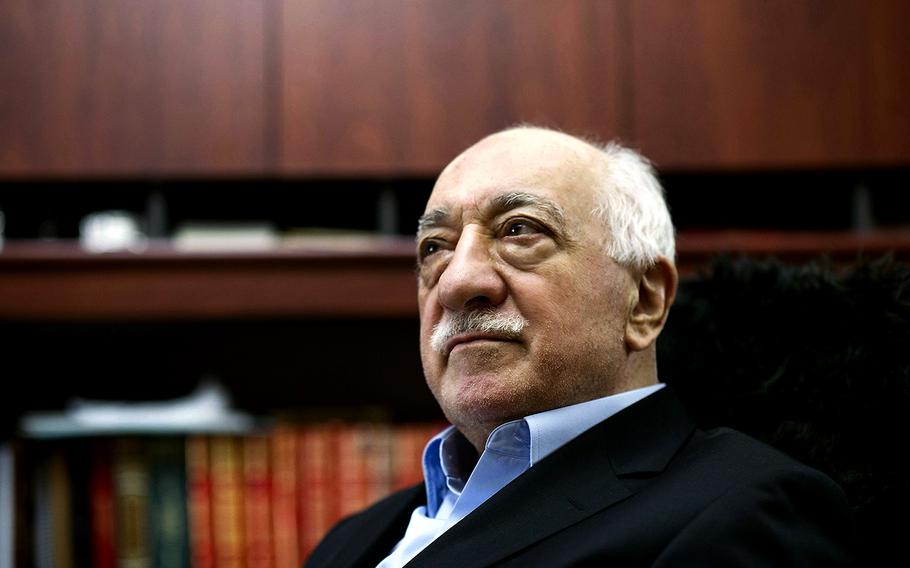
In this March 15, 2014 file photo, Turkish Muslim cleric Fethullah Gulen, sits at his residence in Saylorsburg, Pa. (Selahattin Sevi/AP)
(Tribune News Service) — U.S.-based Turkish cleric Fethullah Gulen, an ally-turned-adversary of President Recep Tayyip Erdogan, has died, Turkey’s government said. He was 83.
“The death has been confirmed by our intelligence sources,” Foreign Minister Hakan Fidan told reporters in Ankara on Monday.
Gulen was accused of masterminding a failed coup attempt against Erdogan in July 2016. He denied any involvement, but thousands of his Islamist movement’s members were purged in the aftermath. The government said the group had infiltrated the state and army, and declared it a terrorist organization.
Turkey failed to convince the U.S. to extradite Gulen, who lived in self-imposed exile in Pennsylvania. The cleric’s death could help ease strains between the NATO allies as they look to strengthen cooperation from defense to energy. Though, Turkey still has extradition requests in place for other alleged members of the group and remains concerned about its lingering presence within Turkish state institutions. Fidan said the government would continue its struggle against Gulen’s organization and warned against any “lethargy.”
While Gulen’s movement was weakened following the government crackdown, the cleric remained a cult figure among his followers.
Erdogan and Gulen were political allies for years, and Gulen’s network was an indispensable part of Erdogan and his ruling AK Party’s rise to power in 2002. They collaborated to push back against a staunchly secular establishment and the army.
The two fell out over a series of rows dating back more than a decade ago.
In 2012, Erdogan shielded Fidan, then Turkey’s intelligence chief, from a judicial inquiry over arms supplies to Syrian rebels. The president said that was the first attempt by followers of Gulen to undermine his government. Erdogan also accused Gulen of being behind a corruption probe into his government.
After their relationship soured, Gulenists leaked more evidence of alleged corruption among the Turkish leader’s inner circle. That prompted the government to label Gulen’s movement a so-called parallel state and shut down media outlets and schools associated with the cleric.
©2024 Bloomberg L.P.
Visit bloomberg.com.
Distributed by Tribune Content Agency, LLC.